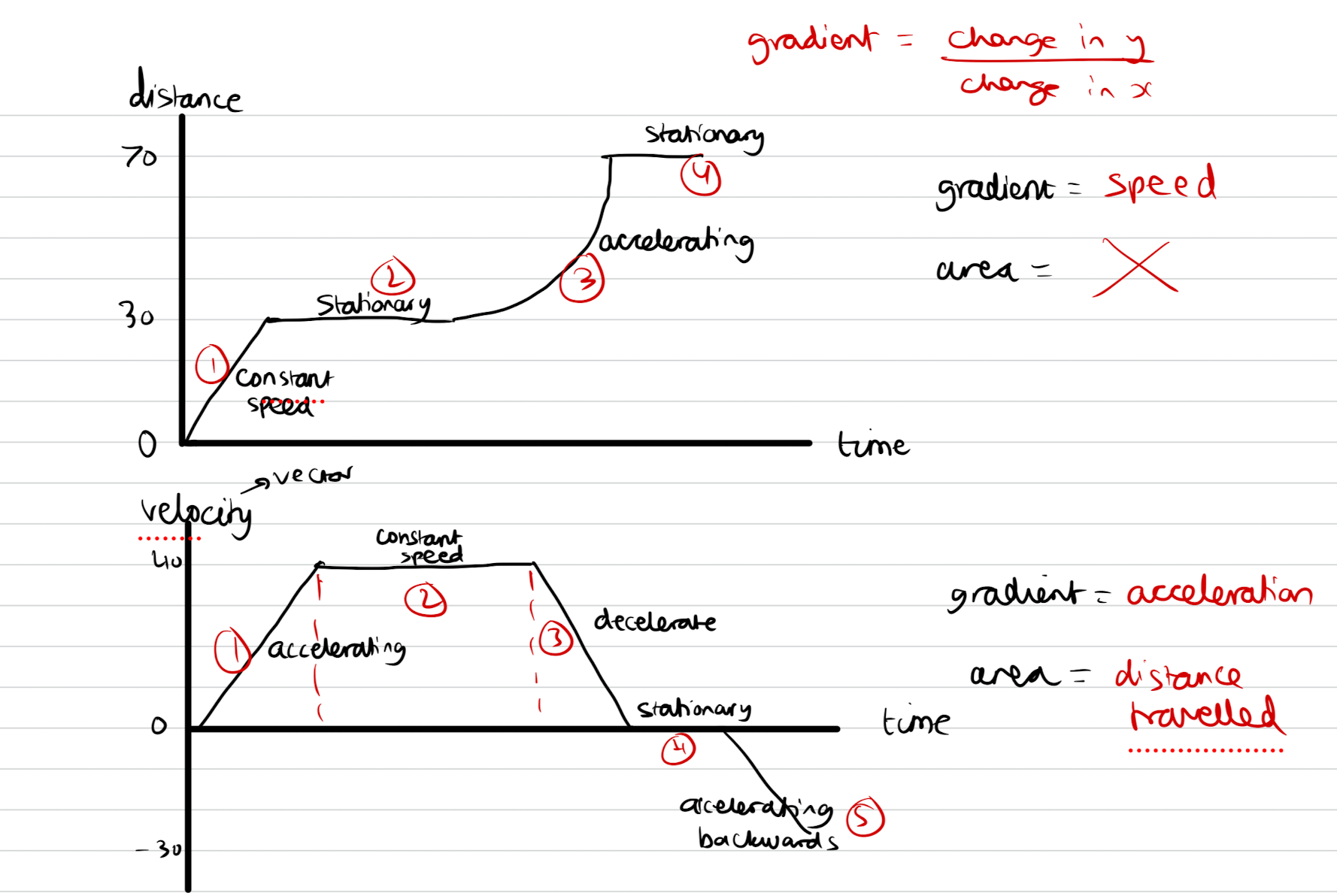- Scalar quantity: has magnitude (size) but no specific direction
- Scalar examples: distance, speed, mass, energy, time.
- Vector quantity: has both magnitude (size) and a specific direction
- Vector examples: displacement, velocity, acceleration, force, weight, momentum.
- Velocity is speed in a given direction.
- Average speed = distance/ time.
- Acceleration = change in velocity/ time taken.
- v2 − u2 = 2ax (given).

- Speeds in m/s:
- walking: 1.5, running: 3, wind: 5, sound: 300.
- Newton's 1st Law:
- If resultant force is zero, i.e. the body will continue moving at a constant velocity or remain stationary.
- If there is a resultant force: the object will accelerate or decelerate.
- Newton's 2nd Law: F = ma
- Newton’s 3rd Law: when two objects interact, they exert an equal and opposite force on each other.
- W = mg
- Weight is a type of force.
- W: weight (N), F: force (N), m: mass (kg), a: acceleration (m/s2).
- An object moving in a circular orbit can have a constant speed but a changing velocity.
- For motion in a circle there must be a resultant force known as a centripetal force that acts towards the centre of the circle.
- Inertial mass: a measure of how difficult it is to change the velocity of an object (including from rest) and know that it is defined as the ratio of force over acceleration
- p = mv
- p: momentum (kg m/s), m: kg, v: velocity (m/s)
- F = (mv - mu)/t (given).
- Stopping distance = thinking distance + braking distance.
- Thinking distance: distance travelled during your reaction time (when you decide to stop until you touch the brake).
- Factors: tiredness, distractions, drugs, speed.
- Braking distance: distance travelled after pressing brakes until car stops.
- Factors: quality of tyres, brakes, wet/ icy roads, speed.
- Large decelerations are dangerous because F = ma, so a greater deceleration would mean a greater resultant force, which means more impact (hurts more).
- Work done means energy transferred.
- Work done to stop a car is the kinetic energy, as this has to be transferred away to other sources e.g. heat to stop the car.